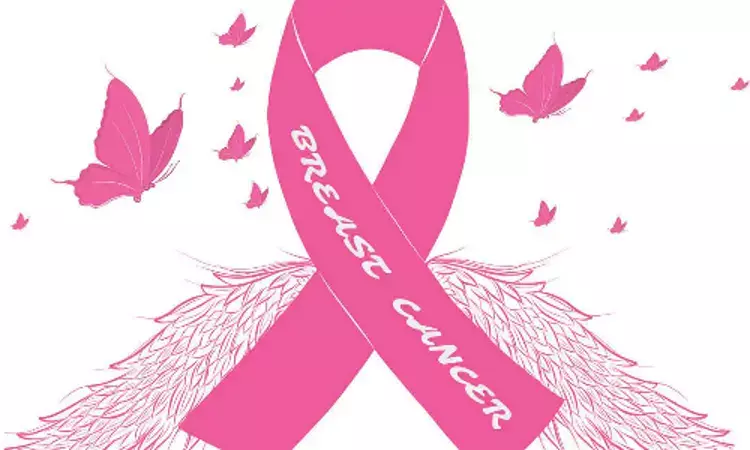- Home
- Medical news & Guidelines
- Anesthesiology
- Cardiology and CTVS
- Critical Care
- Dentistry
- Dermatology
- Diabetes and Endocrinology
- ENT
- Gastroenterology
- Medicine
- Nephrology
- Neurology
- Obstretics-Gynaecology
- Oncology
- Ophthalmology
- Orthopaedics
- Pediatrics-Neonatology
- Psychiatry
- Pulmonology
- Radiology
- Surgery
- Urology
- Laboratory Medicine
- Diet
- Nursing
- Paramedical
- Physiotherapy
- Health news
- Fact Check
- Bone Health Fact Check
- Brain Health Fact Check
- Cancer Related Fact Check
- Child Care Fact Check
- Dental and oral health fact check
- Diabetes and metabolic health fact check
- Diet and Nutrition Fact Check
- Eye and ENT Care Fact Check
- Fitness fact check
- Gut health fact check
- Heart health fact check
- Kidney health fact check
- Medical education fact check
- Men's health fact check
- Respiratory fact check
- Skin and hair care fact check
- Vaccine and Immunization fact check
- Women's health fact check
- AYUSH
- State News
- Andaman and Nicobar Islands
- Andhra Pradesh
- Arunachal Pradesh
- Assam
- Bihar
- Chandigarh
- Chattisgarh
- Dadra and Nagar Haveli
- Daman and Diu
- Delhi
- Goa
- Gujarat
- Haryana
- Himachal Pradesh
- Jammu & Kashmir
- Jharkhand
- Karnataka
- Kerala
- Ladakh
- Lakshadweep
- Madhya Pradesh
- Maharashtra
- Manipur
- Meghalaya
- Mizoram
- Nagaland
- Odisha
- Puducherry
- Punjab
- Rajasthan
- Sikkim
- Tamil Nadu
- Telangana
- Tripura
- Uttar Pradesh
- Uttrakhand
- West Bengal
- Medical Education
- Industry
Higher exposure to UV radiation tied to lower risk of estrogen receptor breast cancer: Study

USA: Findings from a recent study showed that living in areas of higher residential UV (ultraviolet) is related to an 11% lower risk of developing estrogen receptor (ER)-breast cancer. The inverse association was found to be strongest for those who did not use vitamin D supplementation. Further, the researchers observed no association between UV exposure and overall or ER+ breast cancer.
The findings of the study, published in the journal Environment International, provide support for the role of vitamin D in the etiology of ER- breast cancer.
Due to prevalent climate change, there is an increasing ambient UV radiation. This may result in adverse health consequences such as an increased incidence of skin cancer. However, UV radiation is also a source of vitamin D that has been hypothesized to be protective against breast cancer risk.
Against the above background, Alexandra J.White, Epidemiology Branch, National Institute of Environmental Health Sciences, Research Triangle Park, NC, USA, and colleagues aimed to evaluate the association between UV exposure and breast cancer risk in a large prospective U.S.-wide cohort with consideration of whether risk varies by vitamin D supplement use. Additionally, the authors considered whether associations varied by estrogen receptor status of the tumor or menopausal status.
The researchers estimated residential UV exposure levels for the enrollment addresses (2003–2009) of breast cancer-free women aged 35–74 years participating in the Sister Study and living in the contiguous United States (N = 48,450) using a spatiotemporal kriging model. The association for breast cancer overall (invasive and ductal carcinoma in situ) and by estrogen receptor (ER) status of the tumor were examined. Effect modification was considered by regular (≥4 times/week) vitamin D supplement use.
Adjusted hazard ratios (HRs) were estimated for the risk associated with UV exposure levels (mW/m2) categorized in quintile
Over a median of 10.5 years of follow-up, 3,510 incident breast cancer diagnoses were reported.
Key findings include:
- We found no evidence of an association between living in areas with higher levels of UV radiation and overall breast cancer risk (HRQ5 vs. Q1 = 1.00).
- Higher UV levels were inversely associated with the risk of ER- breast cancer (HRQ5 vs. Q1 = 0.73), but not ER+ (HR Q5 vs. Q1 = 1.04).
- For ER- breast cancer, the inverse association was only evident in women who did not regularly take vitamin D supplements (HRQ5 vs. Q1 = 0.52) compared with those who did regularly take vitamin D supplements (HRQ5 vs. Q1 = 1.02).
"The findings from this study support a role for UV exposure and vitamin D in the etiology of ER- breast cancer," the authors concluded.
Reference:
The study titled, "Residential ultraviolet radiation and breast cancer risk in a large prospective cohort," was published in the journal Environment International.
Dr Kamal Kant Kohli-MBBS, DTCD- a chest specialist with more than 30 years of practice and a flair for writing clinical articles, Dr Kamal Kant Kohli joined Medical Dialogues as a Chief Editor of Medical News. Besides writing articles, as an editor, he proofreads and verifies all the medical content published on Medical Dialogues including those coming from journals, studies,medical conferences,guidelines etc. Email: drkohli@medicaldialogues.in. Contact no. 011-43720751


